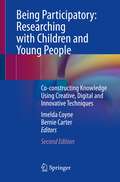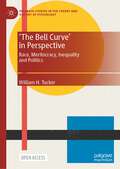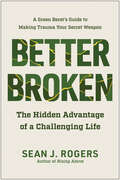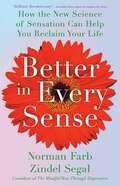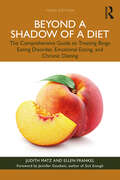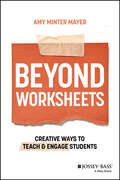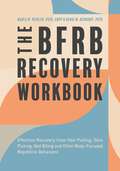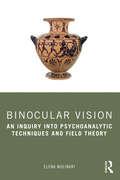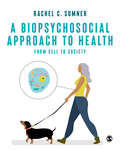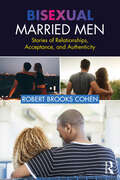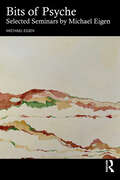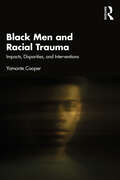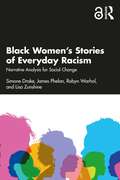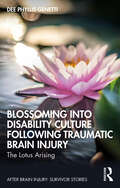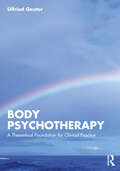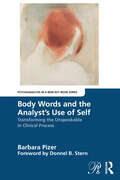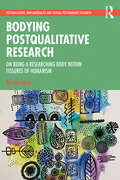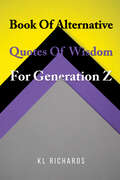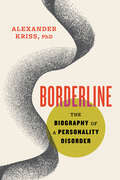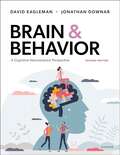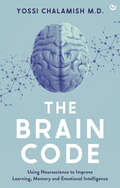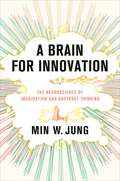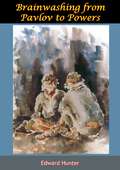- Table View
- List View
Being Participatory: Co-constructing Knowledge Using Creative, Digital and Innovative Techniques
by Imelda Coyne Bernie CarterThe second edition of this book provides a clear framework for conducting participatory research with children and young people supported by practical examples from international research studies. Our aim is to encourage more participatory research with children and young people on all matters that affect their lives. This book illustrates innovative ways of being participatory and how such methods can promote the inclusion of children and young people with diverse experiences and backgrounds. It sheds new light on involvement strategies that recognise agency and that play to children and young people's strengths.The international experts in this book share knowledge built from their wealth of experience in undertaking participatory research with children and young people using creative techniques that can enable and promote ways of expressing their views and experiences. The book provides guidance on appropriate techniques that can reduce the power differential between adultresearchers and children and young people as participants. These techniques help to optimise their abilities to participate in research. There is increasing interest in involving children and young people as co-researchers but little guidance on how this can be done. This book fills a gap in the current literature by addressing all these issues outlined above and by providing worked examples from leading researchers and academics. Building on the success of the first edition and, with an additional three chapters, this second edition is sure to have wide appeal to researchers across a range of different disciplines. This book is targeted at researchers, academics, and practitioners who need guidance on what tools are available, how the tools can be used, advantages and challenges, and how best to involve children and young people in all stages of a research project.
'The Bell Curve' in Perspective: Race, Meritocracy, Inequality and Politics (Palgrave Studies in the Theory and History of Psychology)
by William H. TuckerThis open access book examines the implications of The Bell Curve for the social, economic, and political developments of the early 21st century. Following a review of the reception of The Bell Curve and its place in the campaign to end affirmative action, Professor Tucker analyses Herrnstein’s concept of the “meritocracy” in relation to earlier 20th century eugenics and the dramatic increase in economic inequality over the past 30 years. Tucker demonstrates how, contrary to The Bell Curve’s predictions, the reallocation of these huge sums was neither rational nor beneficial for society. The book moves on to situate The Bell Curve within contemporary politics and shows how it can be seen to have played a role in the 2016 US election. This compelling analysis will appeal to scholars and those with an interest in the history of scientific racism, the history of psychology and the sociology of knowledge and science.This is an open access book.
Better Broken: The Hidden Advantage of a Challenging Life
by Sean J. RogersYour trauma is your tactical advantage. Harness it to create the life of your dreams.From enduring an abusive childhood to fighting as a Special Forces Green Beret in the war in Afghanistan, Sean Rogers has come away from his hardships with the tools necessary to not only survive but thrive. He knows firsthand what it means to face your trauma and use it as a source for incredible strength.In Better Broken, Rogers helps readers from all walks of life harness their trauma for good, by: Identifying, accepting, and embracing your own personal triggers and faultsLearning when change needs to come from within, and when you can change your environment insteadOvercoming a victim mindset and developing the agency required to take control of your lifeTranslating your behavioral growth to financial growthTaking care of your mind, body, and spirit—and building the habits you need to stay healthyYour past doesn&’t have to hold you back anymore. It&’s not only possible to overcome your trauma, but to let it strengthen you—and help you become unstoppable.
Better in Every Sense: How the New Science of Sensation Can Help You Reclaim Your Life
by Norman Farb Zindel SegalRenowned neuroscientist Dr. Norman Farb and clinical psychologist Dr. Zindel Segal reveal how to break out of negative patterns by engaging your senses. For many of us, daily life has stopped making sense. Super-efficient routines that once served us well now stress us out. Patterns of judgment and negative thinking lead to downward emotional spirals. For others, life has simply lost its spark. Where does change come from when habit lets you down? Whether we&’re struggling with a problem, a bad habit, or life in general, we often think we need to be resilient by &“toughing it out&” or &“trying harder.&” But when we do that, our brains double down on the thinking patterns that got us stuck in the first place—even when they clearly aren&’t working for us. Fortunately, the science of sensation provides the key. In Better in Every Sense, neuroscientist Norman Farb and clinical psychologist Zindel Segal explain that the brain has two networks—the rapid problem-solving (habit) network and the sensory network, which is devoted to fresh insight. By tuning into new and everyday sensations—from the feeling of our feet on a crowded street to the sound of birdsong in the park—we can engage the sensory network. When we&’re stressed or stuck, we can pause to notice and feel the dynamic, vibrant world around us and boost our resilience, well-being, health, and creativity wherever we are, in the moment. Grounded in decades of scientific research and filled with simple exercises and practical mental techniques for mastering &“sense foraging,&” Better in Every Sense explores the power of sensory experiences to liberate us from our ruts and dead ends—and help us successfully handle all of life&’s challenges.
Beyond a Shadow of a Diet: The Comprehensive Guide to Treating Binge Eating Disorder, Emotional Eating, and Chronic Dieting.
by Judith Matz Ellen FrankelNow in its third edition, Beyond a Shadow of a Diet is the most comprehensive book available for professionals working with clients who struggle with binge and emotional eating, chronic dieting, and body image.Divided into three sections—The Problem, The Treatment, and The Solution—this book is filled with compelling clinical examples, visualizations, and exercises that professionals can use to deepen their knowledge and skills as they help clients find freedom from preoccupation with food and weight. New research on diet failure, health, weight, and weight stigma makes a case for why clinicians must reflect on their own attitudes and biases to understand how a weight loss focus can harm clients. In addition to addressing the symptoms, dynamics, and treatment of eating problems, this book presents a holistic framework that includes topics such as cultural, ethical, and social justice issues, the role of self-compassion, and promoting physical and emotional well-being for people of all shapes and sizes. Drawing from the attuned eating and weight inclusive frameworks, this book serves as an essential resource for both new clinicians and those interested in shifting their clinical approach.Trauma-informed and filled with compelling client stories and step-by-step strategies, Beyond a Shadow of a Diet offers professionals and their clients a positive, evidence-based model for making peace with food, their bodies, and themselves.
Beyond Worksheets: Creative Ways to Teach and Engage Students
by Amy Minter MayerMake better use of the tools you already have to improve learning outcomes and improve your work-life balance Beyond Worksheets helps K-12 teachers make learning fun, engaging, and relevant using the latest research, actionable classroom strategies, and the ed tech software and systems they already have. Used correctly, these tools let you deepen learning, student engagement, and student participation. As a former teacher, author Amy Minter Mayer knows that, regardless of schoolwide initiatives and rollouts, it's what happens behind the closed doors of a classroom that affects the teacher's success. She wrote Beyond Worksheets as a self-paced guide that empowers teachers, without waiting for school-wide adoption of new tools. Readers will: Learn skills to cultivate classroom culture in a technology-infused environment Transform teaching strategies to meet the needs and challenges of learners Prepare effective lessons that include accommodations while also supporting student focus and engagement using research and brain-based approaches Access templates, strategies, and techniques any educator can employ to drive engagement and increase learning in the classroom Beyond Worksheets is for teachers and instructional leaders who want to make the most of available on-hand tools and the latest research with strategies and resources that will help students learn and improve the lives of teachers.
The BFRB Recovery Workbook: Effective Recovery from Hair Pulling, Skin Picking, Nail Biting, and Other Body-Focused Repetitive Behaviors
by Dr. Marla Deibler Dr Dr. Renae ReinardySo, you want to work on recovery from your body-focused repetitive behavior (BFRB)? Chances are, this is not the first time you've thought about changing your BFRB. And it's probably not the first time you've taken action to overcome it.This workbook provides evidence-based tools consistent with the most up-to-date behavioral science to examine your BFRB in a new way, shift perspective on how you relate to your BFRB experience, reduce the behavior with individually tailored interventions, and transform your life and sense of self for the better.Written by licensed clinical psychologists, this integrative behavioral therapy (IBT) approach is rooted in behavioral and cognitive psychology, utilizing CBT, ACT, DBT and habit reversal training, and is applicable to all BFRBs, including nail biting, hair pulling, and skin picking. Make your way through the workbook at your own pace, with the authors' compassionate guidance, and return to it as often as needed.
Binocular Vision: An Inquiry into Psychoanalytic Techniques and Field Theory
by Elena MolinariBinocular Vision: An Inquiry into Psychoanalytic Techniques and Field Theory explains field theory from a Bionian perspective, while exploring the relationship between art and psychoanalysis. Elena Molinari starts from Bion’s double definition to explore the relationship between the conscious and unconscious thought process. She looks at a wide range of specific situations where field theory can be beneficial, from mother-baby therapy with a borderline mother, couple and group therapy, and the relationship of female subjectivity between an analyst and an adolescent analysand. In each situation, Molinari unpicks what Binocular Vision might mean as a transformative process used to explore the primitive parts of the mind. By doing so, she brings the reader back to the earliest developments of the primary relationship between analyst and client, and how this process can unite the psychoanalytic process and the artistic process. The book has been written for psychotherapists approaching and utilising field theory in child and adult psychoanalysis, and offers vital knowledge to clinicians working with patients in primitive states.
Binocular Vision: An Inquiry into Psychoanalytic Techniques and Field Theory
by Elena MolinariBinocular Vision: An Inquiry into Psychoanalytic Techniques and Field Theory explains field theory from a Bionian perspective, while exploring the relationship between art and psychoanalysis.Elena Molinari starts from Bion’s double definition to explore the relationship between the conscious and unconscious thought process. She looks at a wide range of specific situations where field theory can be beneficial, from mother-baby therapy with a borderline mother, couple and group therapy, and the relationship of female subjectivity between an analyst and an adolescent analysand. In each situation, Molinari unpicks what Binocular Vision might mean as a transformative process used to explore the primitive parts of the mind. By doing so, she brings the reader back to the earliest developments of the primary relationship between analyst and client, and how this process can unite the psychoanalytic process and the artistic process.The book has been written for psychotherapists approaching and utilising field theory in child and adult psychoanalysis, and offers vital knowledge to clinicians working with patients in primitive states.
A Biopsychosocial Approach to Health: From Cell to Society
by Rachel C. SumnerThis unique text takes a holistic approach to show you how different biological and medical aspects of health operate at the cellular level all the way up to the societal level, and back again. It explains key biological aspects of health at the cellular level (such as epigenetics and oxidative stress) to give you a solid understanding of how health is created in the context of the person, before working upwards to examine public health issues ranging from cardiovascular disease to unemployment and loneliness. Throughout the text, you will encounter a diverse range of cross-cultural examples, real-world scenarios and key questions which will help you put the theories and cell-to-society perspective you have learned into practice. With interdisciplinary perspectives from psychoneuroimmunology and epidemiology, this book offers an integrated consideration of health and its biopsychosocial determinants. It is a must-read for students of health psychology, applied psychology, nursing, and public health. Rachel C. Sumner is a psychobiologist and chartered psychologist with the British Psychological Society Division of Health Psychology and a senior research fellow at Cardiff Metropolitan University.
A Biopsychosocial Approach to Health: From Cell to Society
by Rachel C. SumnerThis unique text takes a holistic approach to show you how different biological and medical aspects of health operate at the cellular level all the way up to the societal level, and back again. It explains key biological aspects of health at the cellular level (such as epigenetics and oxidative stress) to give you a solid understanding of how health is created in the context of the person, before working upwards to examine public health issues ranging from cardiovascular disease to unemployment and loneliness. Throughout the text, you will encounter a diverse range of cross-cultural examples, real-world scenarios and key questions which will help you put the theories and cell-to-society perspective you have learned into practice. With interdisciplinary perspectives from psychoneuroimmunology and epidemiology, this book offers an integrated consideration of health and its biopsychosocial determinants. It is a must-read for students of health psychology, applied psychology, nursing, and public health. Rachel C. Sumner is a psychobiologist and chartered psychologist with the British Psychological Society Division of Health Psychology and a senior research fellow at Cardiff Metropolitan University.
Bisexual Married Men: Stories of Relationships, Acceptance, and Authenticity
by Robert Brooks CohenHow much do you know about the lives of bisexual men who are married to women? Do you know any personally? Have you seen them represented in the media or pop culture? Bisexual people make up a majority of the LGBT+ community, but they are still relatively hidden and misunderstood. Robert Brooks Cohen aims to address this invisibility by sharing a collection of interviews with Bi+ men who are or were married to women, helping readers find connection, understanding, and community. Their experience is often erased as "not queer enough", but these men are queer, and they are challenging societal norms in important and innovative ways. Written by the host of 'Two Bi Guys', this book intersperses Robert's bisexual journey with the diverse stories of other Bi+ men to help normalize sexual fluidity and create more awareness and compassion. Each chapter is framed around a bisexual married man's story which touches on an important theme in many people's journey, such as coming out, monogamy, intersectionality, porn, marriage, parenting, and finding community, with Robert sharing his thoughts, research, and analysis. This book shares interviews with men and a few of their wives from a wide array of cultural and regional backgrounds, religious family structures, and more, helping bisexual men find pride, validation, and joy in their sexual identity. This book is written about and for bisexual and questioning men so they can see their experience represented. However, it is also for their partners, family, and friends - as well as students, researchers, clinicians with bisexual clients, and allies - so that they can better understand the unique challenges of this identity and provide meaningful support.
Bits of Psyche: Selected Seminars by Michael Eigen
by Michael EigenThis book includes material from Michael Eigen’s celebrated and long-running seminar series, to explore some of the classic and contemporary key concepts in psychoanalytic theory and practice.Drawing on the work of Winnicott, Bion and Lacan, Eigen explores key psychoanalytic themes which have risen to prominence over the last decade such as the place of politics in psychoanalysis, life, death and psychic deadness, and the role of lies and deception in the consulting room and our world.With over 50 years of experience in leading seminars and working psychoanalytically, Eigen's work is essential reading for all psychoanalysts and psychoanalytic psychotherapists.
Black Men and Racial Trauma: Impacts, Disparities, and Interventions
by Yamonte CooperThis volume comprehensively addresses racial trauma from a clinical lens, equipping mental health professionals across all disciplines to be culturally responsive when serving Black men. Written using a transdisciplinary approach, Yamonte Cooper presents a Unified Theory of Racism (UTR), Integrated Model of Racial Trauma (IMRT), Transgenerational Trauma Points (TTP), Plantation Politics, Black Male Negation (BMN), and Race-Based Shame (RBS) to fill a critical and urgent void in the mental health field and emerging scholarship on racial trauma. Chapters begin with specific definitions of racism before exploring specific challenges that Black men face, such as racial discrimination and health, trauma, criminalization, economic deprivation, anti-Black misandry, and culturally-specific stressors, emotions, such as shame and anger, and coping mechanisms that these men utilize. After articulating the racial trauma of Black men in a comprehensive manner, the book provides insight into what responsive care looks like as well as clinical interventions that can inform treatment approaches.This book is invaluable reading for all established and training mental health clinicians that work with Black men, such as psychologists, marriage and family therapists, social workers, counselors, and psychiatrists.
Black Women’s Stories of Everyday Racism: Narrative Analysis for Social Change
by Simone Drake James Phelan Robyn Warhol Lisa ZunshineBlack Women’s Stories of Everyday Racism puts literary narrative theory to work on an urgent real-world problem. The book calls attention to African American women’s everyday experiences with systemic racism and demonstrates how four types of narrative theory can help generate strategies to explain and dismantle that racism. This volume presents fifteen stories told by eight midwestern African American women about their own experiences with casual and structural racism, followed by four detailed narratological analyses of the stories, each representing a different approach to narrative interpretation. The book makes a case for the need to hear the personal stories of these women and others like them as part of a larger effort to counter the systemic racism that prevails in the United States today.Readers will find that the women’s stories offer powerful evidence that African Americans experience racism as an inescapable part of their day-to-day lives—and sometimes as a force that radically changes their lives. The stories provide experience-based demonstrations of how pervasive systemic racism is and how it perpetuates power differentials that are baked into institutions such as schools, law enforcement, the health care system, and business. Containing countless signs of the stress and trauma that accompany and follow from experiences of racism, the stories reveal evidence of the women’s resilience as well as their unending need for it, as they continue to feel the negative effects of experiences that occurred many years ago. The four interpretive chapters note the complex skill involved in the women’s storytelling. The analyses also point to the overall value of telling these stories: how they are sometimes cathartic for the tellers; how they highlight the importance of listening—and the likelihood of misunderstanding—and how, if they and other stories like them were heard more often, they would be a force to counteract the structural racism they so graphically expose.The Open Access version of this book, available at http://www.taylorfrancis.com, has been made available under a Creative Commons Attribution (CC-BY) 4.0 license.
Blossoming Into Disability Culture Following Traumatic Brain Injury: The Lotus Arising (ISSN)
by Dee Phyllis GenettiThis book tells the author’s story of her ten-year journey of recovery and identity transformation from Traumatic Brain Injury (TBI). Dr. Dee is a survivor who regained the ability to articulate what many TBI survivors cannot, and this powerful account, provided in real-time, portrays the many seemingly unrelatable symptoms of brain injury and subsequent post-traumatic stress disorder (PTSD). Dr. Dee portrays how events pushed her beyond her limits and resulted in life-altering learning experiences, revealing a process of first figuring out how to live, then making meaning of her struggle.When half-way through her PhD program, Dr. Dee was crashed into by a car travelling at 65 miles per hour. She suffered a TBI. She lost her ability to read and write. She had a severe speech impediment and significantly impaired memory. Her journey of recovery, described in the book as her trek, spans four significant periods. The road begins with the loss of most of herself. Diagnosis and evolving symptoms show her broken pathway. The author goes through a rocky road of changes in her relationships and reidentification of herself as she finds her life coach, re-learns to read and write, and deals with mental health issues that felt like the end of her recovery. The final trek reveals hope and posttraumatic growth (PTG) and showcases the value of Disability Culture as a source of pride.This story is for fellow TBI survivors, their caretakers, families and friends, and professionals in the neurorehabilitation field. It brings light to the daunting changes after TBI and give hope for all who tread on this challenging path.
Body Psychotherapy: A Theoretical Foundation for Clinical Practice
by Ulfried GeuterThis book introduces body psychotherapy as one of the essential approaches in psychotherapy, reflecting the increasing integration of the body into clinical mental health practice. The book offers an entirely new view on body psychotherapy based upon advanced research on embodiment, memory, emotion regulation, developmental psychology and body communication and an experiential and relational understanding of psychotherapy. Accordingly, the author grounds the theory of body psychotherapy on the theoretical approach of enactivism, which regards experience as arising from meaningful living interaction with others and their environment. The book, fortified with clinical examples, shows the distinctiveness of body psychotherapy as compared with a traditional talking therapy approach. It also convincingly demonstrates that each form of psychotherapy should consider body experiences. This text will be a comprehensive foundation for psychotherapists of every orientation, scholars of the humanities and students and especially those wishing to integrate embodied experience into their understanding of their patients.
Body Words and the Analyst’s Use of Self: Transforming the Unspeakable in Clinical Process (Psychoanalysis in a New Key Book Series)
by Barbara PizerIn this book, it becomes impossible to stand apart from the analytic field as abstract concepts, such as dissociation, intersubjectivity, and unconscious communication, as well as newly coined ones, like "Relational (K)not" and "Body Words," come alive through a vivid unfolding of analytic process.You are invited into the mind of the analyst as she draws from reverie, memory, and affect to inspire offerings that enliven the moment, moving the analytic pair forward in affective freedom and self-definition. Body Words identify the subjective linkages we make to describe experiencing within and between self and other that leads us to know whether we or our patient are delivering the message in a manner that feels real. Each chapter illustrates how Pizer arrived at this important concept and others in a way that is full of rich, experience-near clinical moments that posed significant challenges. Body Words and the Analyst's Use of Self is a rare window that allows readers—new and seasoned clinicians of various theoretical persuasions—to become intimate witnesses to the analyst's subjectivity and the creativity of the analytic partnership.
Bodying Postqualitative Research: On Being a Researching Body within Fissures of Humanism (Postqualitative, New Materialist and Critical Posthumanist Research)
by Nicole LandBodying Postqualitative Research posits the question of what happens when lived, fleshy human bodies engage in postqualitative research in education. It takes as its central concern research propositions aimed at dismantling the structures of humanism that typically govern research in education and uses postqualitative conceptions of data, methodology, and clarity in conjunction with insights from feminist science studies scholars to imagine how we might ‘body’ postqualitative work. This book uses the provocations offered by postqualitative research and takes these touchpoints to dismantle dominant logics of research, born of neoliberalism and ongoing settler colonialism to offer alternative perspectives. Importantly, this book stays near to the body by proposing caffeine shakes, antipsychotic medications, and scars as moments to take seriously how bodies do researching practices. After each chapter, the book turns to poetry as a "fracture" or a moment of disruption to the rhythm of the text that incites readers to reconsider the previous chapter otherwise. It concludes by asking what bodying postqualitative research might mean for pedagogy and for propositions toward future inquiry. Drawing together the work of feminist science and education scholars oriented toward the biosciences and whose work has not yet been immersed into postqualitative scholarship in a sustained way, this book brings together a vein of feminist science studies theorizing that both deepens and troubles postqualitative scholarship through its focus on the politics of science and the possibilities of doing bodies with biology, culture, and life. The volume is suitable for students and scholars interested in postqualitative and embodied research methods in education, and feminist and gender studies.
Book Of Alternative Quotes Of Wisdom For Generation Z
by Kl RichardsNavigate the modern maze of life with Book of Alternative Quotes of Wisdom for Generation Z as your compass. This thoughtfully curated collection of quotes and affirmations is tailored to guide Generation Z through the daily challenges moulded by social media influences and the ever-evolving digital landscape. In a world where your social circles and self-identity play pivotal roles, this book helps you reflect on the company you keep – are they uplifting or do they tether your potential? It nudges you to identify the facets of life that challenge, change, and ultimately, define you. Structured in digestible sections, this book facilitates a gradual exploration of topics – from self-awareness to personal growth, and from chasing dreams to overcoming adversities. It’s not just a book, but a catalyst for self-reflection and a beacon of motivation. Embark on a journey of self-discovery and goal setting as you delve into a wealth of positive affirmations and insightful quotes. Each page is designed to spark introspection, fostering a deeper understanding of your aspirations and the hurdles on your path. Whether you’re seeking inspiration to tackle life’s challenges head-on or in need of a daily dose of positivity, this book is a treasure trove of wisdom that resonates with the pulse of Generation Z.
Borderline: The Biography of a Personality Disorder
by Alexander KrissAn intimate, compassionate, and expansive portrait of Borderline Personality Disorder that rejects the conventional wisdom that the condition is untreatable and those diagnosed with it are &“difficult,&” told by a psychologist who specializes in BPDMental illness is heavily stigmatized within our society, and folks with BPD are portrayed as especially hopeless by doctors and popular culture alike. When, as a graduate student, Alexander Kriss first began working as a therapist in the field, his supervisors warned him that borderline patients were manipulative and had a tendency to drop out of treatment. Yet, years later, when Kriss was establishing his private practice and a patient named Ana came to his office, he felt compelled to try to help her, despite all of the warnings he'd heard.Borderline is the story of his work with Ana—how their relationship led Kriss to a deeper understanding of the borderline experience and what it means to be a person. Borderline is also the story of the disorder itself—Kriss traces accounts of the condition going back to antiquity, showing how this diagnosis has been known by many names over the millennia, most of them gendered: witchcraft, hysteria, moral insanity. All referred to a person—usually a woman—whose behavior and personality were seen as unstable, unpredictable, and uncontrollable. Kriss illustrates the pivotal role borderline patients played in the invention of psychotherapy, the development of modern psychology and psychiatry, and current attitudes about what it means to be healthy. Through the interweaving of personal and global histories, he ultimately argues that BPD is the most important diagnosis of our time: the individual expression of cultural angst that emerges out of systemic inequality, the fracturing of narratives, and our collective search for meaning and identity.
Brain And Behavior
by David Eagleman Jonathan DownarBrain and Behavior seeks to tell the story of the brain in a logical, engaging, and meaningful way. By exposing overarching principles rather than simply listing facts, Brain and Behavior highlights what we understand about the function of the brain and what we have left to learn. This text makes clear the current thinking in the field and builds the scaffolding for the student to learn new concepts. Without compromising important ideas, this book covers a wide swath of territory critical for understanding the brain, from the basics of the nervous system to sensory and motor systems, the frontal lobes, sleep, language, memory, drug addiction, and brain disorders. Throughout the book, the narrative emphasizes the dynamically changing nature of the brain (neuroplasticity) using clear writing and real-life examples.
The Brain Code: Using neuroscience to improve learning, memory and emotional intelligence
by Yossi ChalamishThis practical and accessible book empowers readers to access their brain&’s full potential, featuring cutting-edge neuroscience research presented for the first time.This book introduces the new and fascinating field of Clinical Neuroscience, which argues that the brain has the power to prevent and treat a variety of neurobiological disorders, from autism to attention deficit disorder. With ground-breaking neuroscience research presented in an accessible, easy-to-understand way The Brain Code teaches readers how to get the most from their brains, how to access their peak cognitive function. Each chapter will look at different functions of the brain:how can we regulate and control our emotions and thereby promote optimal thinking and behaviourimproving creative thinking through some simple tried-and-tested tricks efficient ways to use memory and thinking to improve our learning ability – a mandatory chapter for every student!steps to take to promote peaceful sleep recent brain research describing natural ways to deal with fears and anxietieslook behind the scenes at a mind in love and understand how the knowledge can be harnessed to manage more successful relationshipsDr Yossi Chalamish uses his expertise in neuroscience to provide contemporary research on how each brain function works, featuring case studies from his clinical experience that illustrate its function, and practical exercises and tools to improve your cognitive abilities in your everyday life.
A Brain for Innovation: The Neuroscience of Imagination and Abstract Thinking
by Min W. JungWhat sets humans apart from other animals? Perhaps more than anything else, it is the capacity for innovation. The accumulation of discoveries throughout history, big and small, has enabled us to build global civilizations and gain power to shape our environment. But what makes humans as a species so innovative?Min W. Jung offers a new understanding of the neural basis of innovation in terms of humans’ exceptional capacity for imagination and high-level abstraction. He provides an engaging account of recent advances in neuroscience that have shed light on the neural underpinnings of these profoundly important abilities. Jung examines key discoveries concerning the hippocampus and neural circuits that have demystified the processes underlying imagination and abstract thinking. He also considers how these capacities might have evolved as well as possible futures for intelligence.Bringing together disparate findings in neuroscience, psychology, anthropology, and artificial intelligence, A Brain for Innovation develops a unified perspective on the mechanisms of imagination, abstract thought, and creativity. Presenting cutting-edge neuroscientific research in a way that is accessible to readers without a background in the subject, this book is essential reading for anyone interested in the biological basis of one of the most fundamental aspects of human nature.
Brainwashing from Pavlov to Powers
by Edward HunterIntelligence agency veteran and journalist Edward Hunter shares the experiences of men he interviewed who were subject to brainwashing as prisoners in totalitarian communist societies.A shocking yet informative expose of the history and techniques of brainwashing by communist military and security services, this book commences by delving into the origins of the practice. Ivan Pavlov, a vaunted scientist in the Soviet Union, was an unwitting aide to the process—his experiments on animals, and the discoveries he made therein, would form the basis of the incarceration and interrogation methods used in multiple communist states. The object of such procedures was to break down a person's ego, and rebuild it in the form of an unwavering supporter to communist ideology.Chapter by chapter, we are given a detailed guide to the physical and mental manipulations which comprise brainwashing. Supporting this information are multiple interviews and accounts of prisoners who lived to tell of their ordeals. Some of these men are intellectuals, persecuted for their mental prowess, while others are captured soldiers. Many retained their sanity by discovering ways to subvert the process—the harsh interviews, replete with threats, were rebuffed. In short, the playbook of the brainwasher is exposed as having exploitable flaws and weaknesses.Although the subject is by nature grim and dark, Edward Hunter's narration is interspersed with humorous narratives. The experiences of British and American POWs during the Korean War are humorous; to the bafflement of their guards, men would feign insanity and pretend to be hallucinating, be it through having an illusory girlfriend or riding a non-existent bicycle. The sense of camaraderie did much to strengthen the resolve of these soldiers, in spite of the adverse conditions of their camp.-Print ed.
